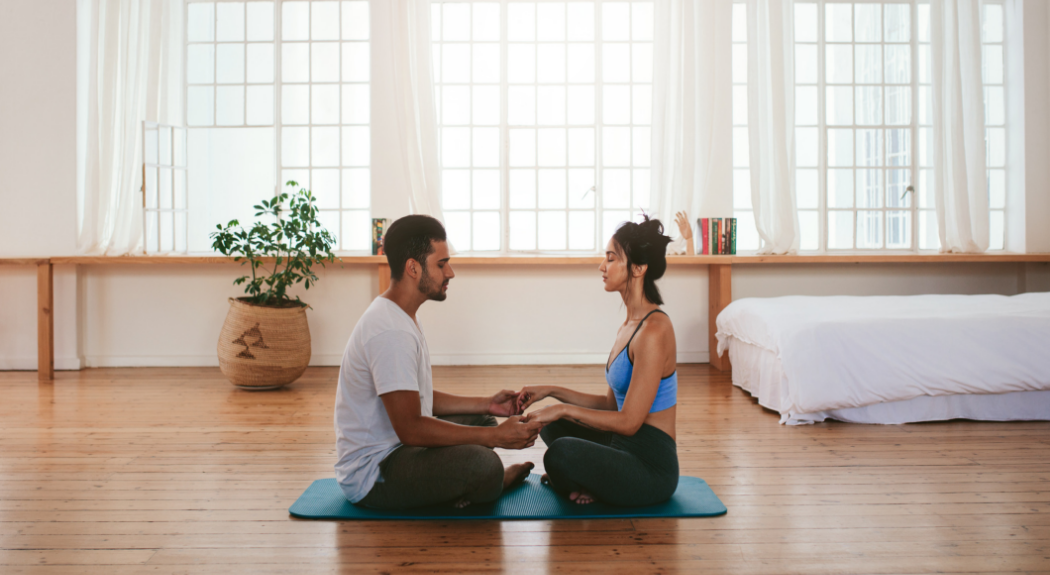“Put on your oxygen mask first” might sound cliché, but it’s the best metaphor for self-care.
How many times have you felt burned out but continued to push yourself past your limits? How many times have you put your needs on the back burner for your family despite being exhausted? And how many times have you said “yes” when really what you wanted to say was, “no, not today”?
Being a parent is a beautiful gift. By nature, you begin to let go of your priorities to take care of your children. You can’t help but give them your all, even if that means coming home after a busy day and continuing to pull energy from a tank that otherwise feels empty.
Your children need you. Now more than ever before as the discussion around mental health is at an all-time high. The statistics are eye opening. One in 5 children ages 13-18 have or will have a serious mental illness at some point during their life, according to the National Alliance for Mental Illness (NAMI). Another finding shows that suicide is the third leading cause of death in ages 10-24.
You play a crucial role in your child’s wellbeing and mental health, but caring for your child can have an impact on your health too. To best care for the people you love, you must first take care of yourself. Here are some steps you can take:
- Practice self-care. No, you’re not being selfish — this is important to remember. Self-care has become a trendy term but most people don’t put it into practice. A good way to start is to first give yourself permission to do it and focus on yourself, even if just for a day.
- Identify replenishing activities that work for you. Scrolling through your phone, being on social media or watching TV are activities that occupy your time but do not replenish you. Instead, try taking a walk, going for a jog or sitting somewhere surrounded by nature. Savor doing activities that replenish you and look forward to doing them.
- Know your limits. It’s OK to ask for help or delegate chores and responsibilities to others when you don’t feel like you can take on more. Not being able to do everything by yourself is not a sign of weakness. It is realistic to know your limits and to prioritize self-care.
- Look at the big picture and re-center. Centering helps you be a consistent and stable parent for your children. If you’re always involved in a frenzy of activities, you won’t be able to do this. Practice mindfulness — being present in the moment with full awareness and without judgment of thoughts and feelings — instead of being distracted by what’s next on the list. Engaging in self- care activities and reminding yourself of core values can help with centering.
- Set realistic expectations. Don’t compare yourself to other parents. Parenting is not a competition. What might be a priority for you might not be for another parent. Identify what is important to you and your family. Is it spending more time together? Sharing more things? Going out to the movies? Set your own goals and expectations, and focus on those.
- Schedule alone time. Yes, you’re allowed to do this! Listen and take care of yourself.
- Meditate/relax. Take a break from the “motor mind” by deep breathing, being a witness to the thoughts in your mind, or listening to music that uplifts you. This is a good way to relax, be present and unwind from your hectic day-to-day.
- Ask for help. Approximately 1 in 5 adults in the U.S. — 43.8 million — experiences mental illness in a given year, according to NAMI. Don’t be afraid to seek professional help or talk to your doctor about issues you may be experiencing.
By taking care of your own physical and emotional health, you’ll be better equipped to serve as a role model for your child and/or handle the challenges of supporting someone with a mental illness. Neglecting your own emotional needs can lead to depression or anxiety down the line.
Don’t forget that your children are watching and will learn from you how to deal with stressful situations. Be in tune with yourself. You can’t live a life that’s fulfilling and meaningful if you’re always focused on others. Like they tell you on an airplane, you can’t help the person next to you if you don’t have your oxygen mask on first.
Aruna Gogineni, Ph.D., LCSW-C, is a mental health practitioner and researcher at Anne Arundel Medical Group (AAMG) Mental Health Specialists. To reach her, call 410-573-9000. Raymond Hoffman, MD, is medical director of Anne Arundel Medical Center’s Mental Health and Substance Use services. To reach him, call 410-573-9000.
Raymond Hoffman, MD, is medical director of Anne Arundel Medical Center’s Mental Health and Substance Use services. To reach him, call 410-573-9000.




